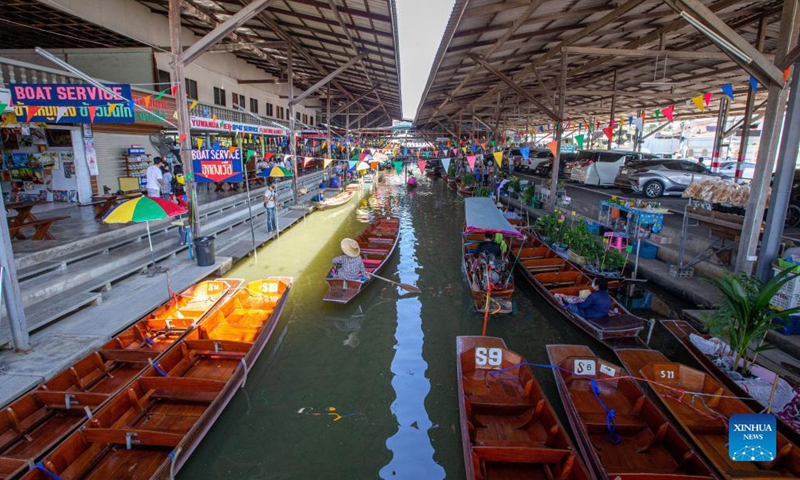SE Asia’s women more vulnerable to pandemic job loss

Photo taken on Dec. 11, 2021 shows the Damnoen Saduak Floating Market in Ratchaburi, Thailand. Thailand's floating markets have always been favored by foreign tourists.Photo:Xinhua
Southeast Asia's youth and women bore the brunt of job losses during the COVID-19 pandemic, according to an Asian Development Bank (ADB) report released Thursday.
The report focusing on labor markets in Southeast Asia finds that people aged 15 to 24, who represent less than 15 percent Of the workforce in Indonesia, the Philippines, Thailand, and Vietnam, accounted for as much as 45 percent of job losses at the height of the pandemic in 2020.
In Thailand, women accounted for 60 percent of all job losses, including 90 percent in manufacturing, in the second quarter of 2020.
The report explains that young workers were more likely to lose jobs mainly because they dominated hard-hit sectors such as hotels and restaurants and wholesale and retail trade, while women were more likely to leave the labor force, mainly to take care of their families during the pandemic.
Unlike in previous crises, the report says supply chain disruptions, a decline in domestic and international demand, mobility and travel restrictions, and limited possibilities of working remotely led to massive job cuts in agriculture, wholesale, and retail.
The report says the pandemic also exacerbated growing inequalities between skilled and unskilled workers, hurting low-skilled and middle-skilled workers whose jobs face automation or are being moved elsewhere. The most vulnerable groups were informal workers, self-employed workers, temporary workers, and migrant workers. "Despite unprecedented government responses, COVID-19 has exposed significant social protection gaps associated with high and persistent informality across the region," said ADB Director General of Southeast Asia Ramesh Subramaniam.

